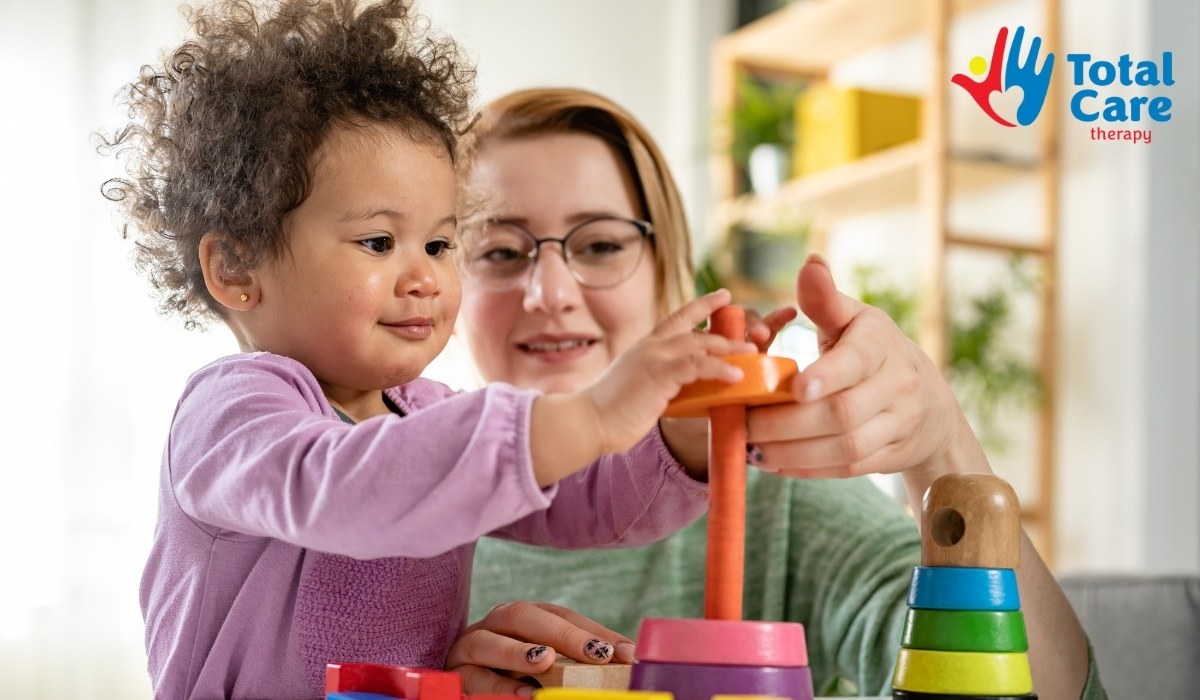ABA Program in Arizona: 12 Things Every Parent Should Ask
ABA program in Arizona offers families support and growth—discover 12 key questions every parent should ask before choosing the right therapy for their child.
ABA Program in Arizona: 12 Things Every Parent Should Ask
Key Points:
- Asking the right questions helps parents choose an ABA program in Arizona that truly meets their child’s developmental needs.
- Understanding program structure, therapist qualifications, and family involvement can dramatically improve therapy outcomes.
- Practical tips on evaluating therapy quality, tracking progress, and ensuring individualized support are crucial for informed decision-making.
Finding the right ABA program in Arizona can feel overwhelming. With so many centers, therapists, and program structures, it’s natural for parents to have countless questions. Asking the right ones can make all the difference, helping ensure your child receives high-quality, individualized therapy. At Total Care ABA, we understand the nuances of Applied Behavior Analysis (ABA) therapy and the unique concerns families face when starting this journey.
Here’s a comprehensive guide to the 12 questions every parent should ask before committing to a program.
What is the Program’s Approach to ABA Therapy?
ABA programs aren’t one-size-fits-all. Some may use discrete trial training (DTT), while others focus on natural environment teaching (NET) or a combination. Asking about the program’s approach helps you understand how learning is structured and whether it aligns with your child’s needs.
Look for programs that:
- Integrate play-based learning for engagement.
- Prioritize functional skills like communication, social interactions, and daily living tasks.
- Adjust teaching methods based on ongoing progress assessments.
Understanding the methodology ensures your child receives therapy in a way that’s both effective and enjoyable.
How are Goals Developed and Measured?
A quality ABA program in Arizona will create individualized goals for each child. These goals should be:
- Specific: Targeting precise skills such as asking for a drink or greeting peers.
- Measurable: Progress should be trackable through data collection.
- Functional: Focusing on skills that improve daily life and independence.
Ask how frequently goals are updated and how progress is communicated to families. This ensures therapy remains relevant and outcome-driven.
Who Will Be Working with My Child?
Therapist qualifications matter. Inquire whether the program employs:
- Board Certified Behavior Analysts (BCBAs) to design treatment plans.
- Registered Behavior Technicians (RBTs) to implement therapy.
- Experienced staff trained in autism spectrum disorders.
Consistency is also key. Regular staff changes can disrupt learning. Ask how the program maintains continuity in therapist assignments.
What is the Parent Involvement Policy?
ABA therapy works best when parents are active partners. Programs should:
- Offer parent training sessions.
- Provide strategies for reinforcing skills at home.
- Encourage regular meetings to review progress and address concerns.
Being involved helps you support your child outside of therapy sessions, making gains more durable and meaningful.

How is Data Collected and Shared?
Data collection is the backbone of ABA therapy. Ask:
- How is skill acquisition and behavior tracked?
- Are parents given access to progress reports or digital dashboards?
- How often is data reviewed to adjust treatment plans?
Transparent data-sharing allows parents to stay informed and ensures therapy decisions are evidence-based.
What is the Program’s Approach to Challenging Behaviors?
ABA therapy can address challenging behaviors safely and effectively. Ask about:
- The strategies used to reduce aggression, tantrums, or self-injurious behaviors.
- How the program teaches replacement behaviors.
- Whether interventions are ethical, individualized, and positive rather than punitive.
Understanding this ensures that your child’s behavioral needs are met in a compassionate, skill-building manner.
How Long are Sessions, and How Frequently Do They Occur?
Session length and frequency can vary depending on age, severity, and therapy goals. Typical programs may offer:
- 10–40 hours per week for intensive early intervention.
- Shorter sessions for older children focusing on social and adaptive skills.
Ask how flexible scheduling is, and whether therapy can be integrated with school or extracurricular activities without causing burnout.

How are Generalization and Maintenance Addressed?
Learning in therapy doesn’t automatically translate to real life. Programs should:
- Teach skills across multiple settings (home, school, community).
- Reinforce learned skills over time to prevent regression.
- Use real-world scenarios to practice communication, social skills, and daily living tasks.
This ensures that your child can use the skills independently outside the therapy room.
What Kind of Support is Available for Siblings and Families?
A child’s development impacts the whole family. Ask if the program provides:
- Guidance for siblings on understanding autism and behavior.
- Counseling or support groups for parents.
- Workshops or resources for navigating therapy and insurance processes.
Family-centered care strengthens outcomes and reduces stress at home.
What are the Credentials and Experience of Leadership?
A strong ABA program relies on leadership that is both knowledgeable and hands-on. Ask:
- How long the clinical director or BCBA has been practicing.
- Their experience with various autism presentations.
- Ongoing professional development and supervision practices.
Leadership quality often sets the tone for program consistency, therapist training, and therapy outcomes.

Are Telehealth or In-Home Options Available?
Flexibility can improve accessibility and engagement. Consider asking:
- Does the program offer virtual ABA therapy for families with transportation challenges?
- Are in-home sessions possible for natural environment teaching?
- How are telehealth sessions structured to maintain quality and data accuracy?
Access to flexible delivery models can help maintain consistency, which is critical for skill development.
What are the Costs and Insurance Options?
ABA therapy can be expensive, but many programs accept insurance or offer sliding scales. Ask:
- Which insurance plans are accepted.
- How out-of-pocket expenses are calculated.
- Whether funding options or grants are available.
Understanding financial logistics ahead of time prevents surprises and allows families to plan long-term therapy support.
Putting It All Together
Choosing the right ABA program in Arizona is about asking these 12 key questions and evaluating responses thoughtfully. A high-quality program will not only teach skills but also empower families, ensure individualized care, and support sustainable progress.
At Total Care ABA, we focus on delivering compassionate, evidence-based ABA therapy tailored to each child’s strengths and needs. Our team works closely with families to set meaningful goals, track progress meticulously, and provide practical strategies for home implementation. With options across New Mexico, Georgia, Tennessee, Indiana, North Carolina, Maine, and Utah, our services make consistent ABA therapy accessible to children and families seeking measurable, life-changing outcomes.
Contact us today to start exploring personalized ABA therapy and see how our dedicated team can support your child’s development every step of the way.


.svg)
.svg)







